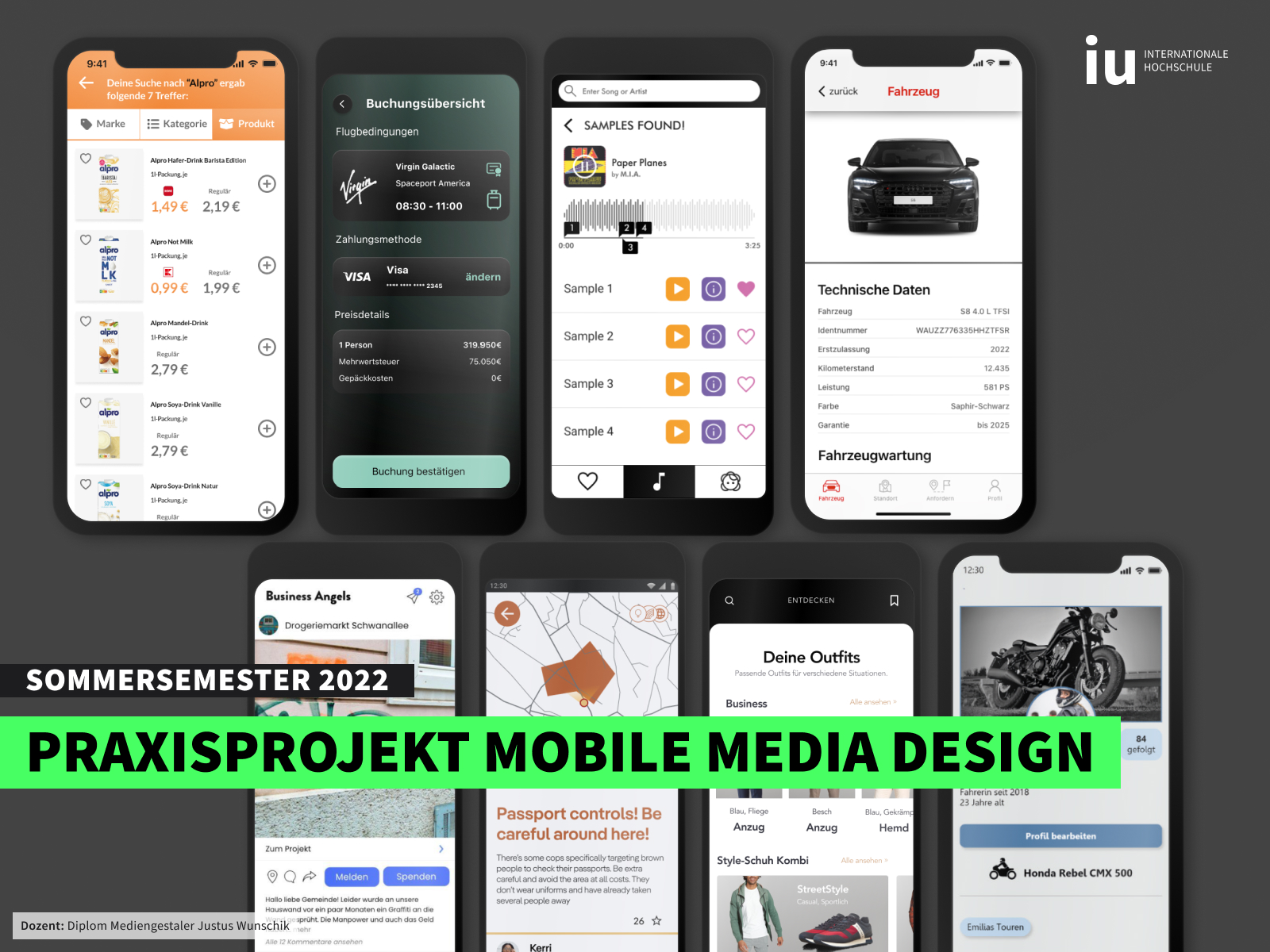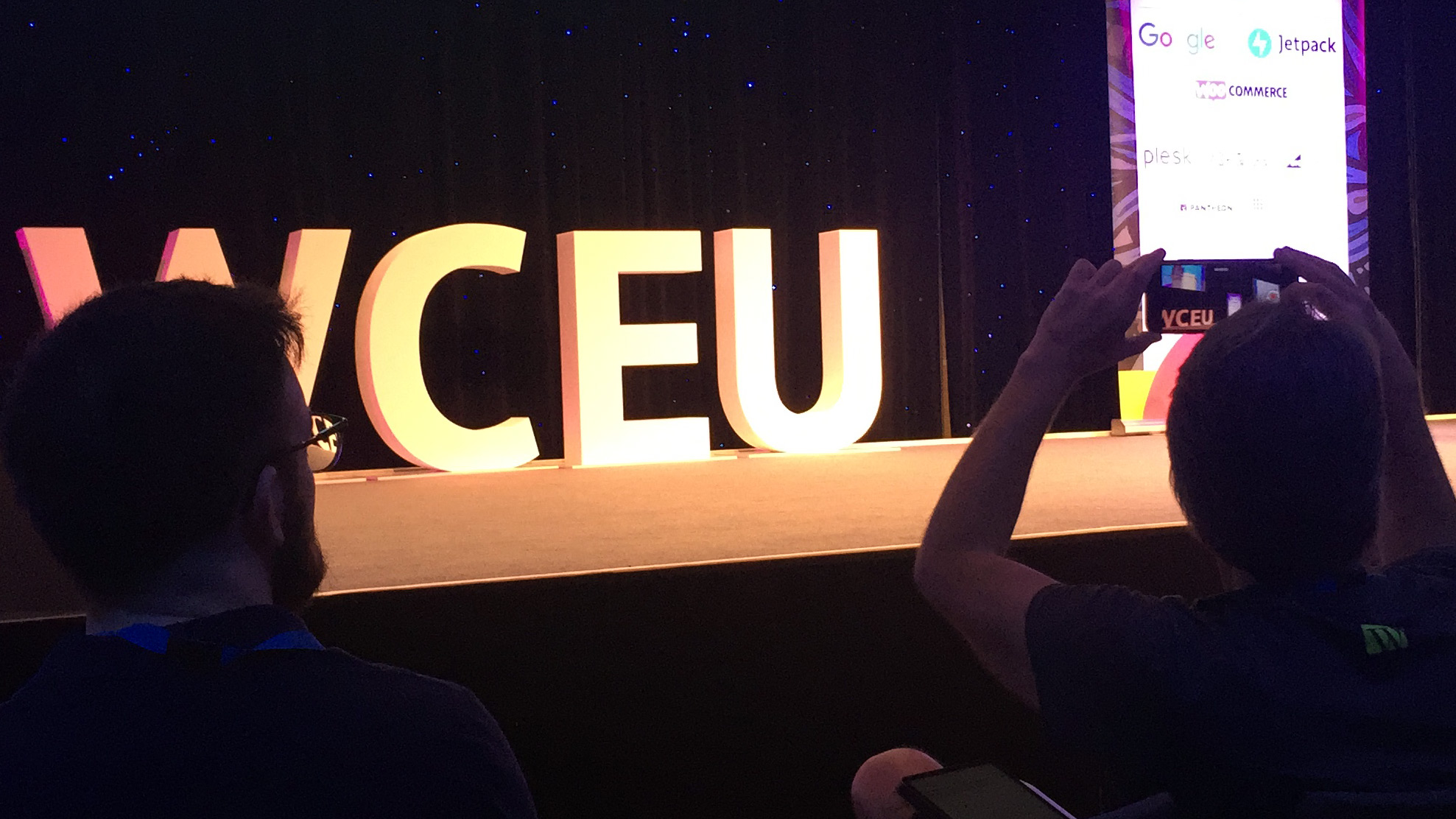Ein Erlebnisbericht
Die englische Version dieses Beitrags:
https://www.bfmg.de/wordcamp-europe-2019
Die
größte Konferenz der weltweiten WordPress-Community gastierte im Juni 2019 im
Estrel in Berlin-Neukölln.
Dieses Hotel und Kongresszentrum im Süden der Stadt ist für die meisten
Bewohner der Stadt praktisch unsichtbar. In einem Bermudadreieck aus
Autobahnbaustelle, prä-urbanem Gewerbegebiet und S-Bahn liegt ein Riese
verborgen. Die postmoderne Fassade mit ihren scharfen (gänzlich Fēng Shuǐ untauglichen) Glasfassaden lädt das Auge
nicht zum Verweilen ein, und so ahnt niemand, dass hier die Spitze eines
Eisberges – eines Konferenzriesen – zu sehen ist.
„Das
Estrel an der Sonnenallee im Berliner Ortsteil Neukölln ist mit 1125 Zimmern
und einem Umsatz von 73,5 Millionen Euro im Jahr 2017 Deutschlands größtes
Hotel. Insgesamt umfasst das Estrel Congress Center über 25.000 m² Fläche für
Kongresse, Tagungen, Messen und Events und kann bis zu 12.000 Besucher
beherbergen.“ [1]
Nach
Angaben des Veranstalters war diese Ausgabe des sogenannten WordCamps die
bisher größte Konferenz mit 3260 verkauften Karten in 97 Ländern weltweit. [2]
WordPress
ist ein freies Content-Management-System, das als Open-Source-Projekt ständig
weiterentwickelt wird.
Aus
der Selbstbeschreibung auf wordpress.org: „Das Entwicklungsteam von
WordPress glaubt an die Demokratisierung des Publizierens und an die Freiheit,
die mit Open Source einhergeht. Unterstützt wird diese Idee von einer großen
Gemeinschaft von Menschen, die an diesem Projekt mitarbeiten und zu diesem
beitragen.“
2018
nutzen schon 30 Prozent aller Websites das Open-Source-CMS WordPress. Der
Anteil am CMS Markt lag bei rund 60%. [3]
Der
Eisberg und schlafende Riese vor den Toren der Stadt ist wie erwähnt ein
durchaus passender Ort für Superlative dieser Art. Bereit sich aufzurichten und
einen Schritt in den sagenumwobenen Stadtteil der prokrastinierenden
Hippsterbewegung digitalen Ursprungs zu setzen.
Ich
bin zwar mit der Software vertraut, gehöre aber nicht zum Kreis der „Nerds“, zudem
bin ich als älteres Semester mit Schulkind zeitlich weit entfernt von der
Flexibilität junger Digitalnomaden. Ich notiere also was ich mitnehmen kann –
unvollständig, manchmal neben dem Thema … kein Mitschreiben in Echtzeit wie bei
den Untertiteln auf der Veranstaltung.
Freitag
In
so einem Konferenzszenario gerät man als Rezipient leicht in die Situation den
Argumentationslinien nicht folgen zu können. Schaut man jetzt auf die linke
oder die rechte Großbildleinwand, oder wendet man sich lieber dem Sprecher
selbst zu. Die erste Option rückt die besagten Untertitel ins Blickfeld und
Unterbewusstsein, und führt zu ständigen Vergleichen zwischen dem, was man
selbst gehört hat, und den Wörtern, die da auftauchen. Die Wörter tauchen genau
genommen nicht einfach auf, man ist Zeuge eines evolutionären Vorgangs. Aus
einzelnen Silben entstehen Wörter, um sich im weiteren Verlauf selber zu korrigieren
und schließlich mit dem was noch auftaucht inhaltlich und grammatikalisch Sinn
zu ergeben.
Viel leichter kann ich dem Wagen mit Kuchenstücken folgen, der in der Pause von
einem Angestellten in voller Kochmontur geschoben wird. Ich sehe meine Chance
ein Filmchen mit Instagram zu veröffentlichen. Mir schwebt irgendein launischer
Kommentar dazu vor Augen, sowas wie „der Kuchenwagen rollt, die Konferenz ist
gerettet …“, da spricht mich der Chauffeur des Gebäckmobils (ein großes mehrgeschossiges
Model ca. 2 Meter groß) an: „Hey! Are you filming? This ist not cool!“
„No, of course not!“ Ich drücke vor Schreck auf Abbrechen und der
Filmschnippsel und meine Karriere als Instagram Influencer haben sich erledigt.
Später nehme ich mir vor solche Begebenheiten stattdessen in Textform zu
veröffentlichen (ein waghalsiges Unternehmen).
Näher
am Thema Netzwerke und Netzwerken ist eine andere Szene während der
Kaffeepause. Ich stehe an einem der Stehtische und trinke eine Tasse Kaffee,
als ein Mann an das Stehmöbel herantritt und mich freundlich fragt: „Hi, how
are you? How do you like the conference?“
Ich
erkläre ihm was ich so mache, und wann das auch mal mit WordPress zu tun hat.
Er ist Webentwickler und ist eigens aus Polen angereist. Ein nützlicher Kontakt
denke ich, also nestele ich an meinem Visitenkartenetui. Es wird eine
Enttäuschung für Liebhaber bedruckter Zellstoffe. Er benutze keine
Visitenkarten und würde auch keine aufbewahren. So etwas wird heute mit einer
App erledigt. Er setzt auf die App von LinkedIn mit der entweder ein QR-Code
präsentiert wird, oder der des Gegenübers mit der Kamera des Smartphones
eingescannt wird. Der versierte Entwickler bedient gleich übereifrig und
euphorisch mein Telefon mit, und die Kontakte sind ausgetauscht.
Zwischen dem Bereich für Kaffee & Imbiss und dem Hauptkonferenzsaal (es
gibt insgesamt drei), liegt die Halle der Sponsoren. Hier erwarten den
Souvenirjäger die diversen Gratisgeschenke (neudeutsch „Swag“). Neben T-Shirts,
Ladekabeln und Kaffeebechern ist mein persönliches Highlight ein Paar sehr
bunte Socken.
Im
Hauptsaal beginnt jetzt die Keynote von Matt Mullenweg (Mitgründer und Erfinder
von WordPress „WP“). Das folgende Bühnenstück erinnert stark an die Auftritte
von Apple CEOs, nur das hier offenbar andere Regeln gelten, die das geplante
Jubelfeuerwerk in das verhaltene Klatschen einiger Hände verwandeln.
Als auf den Bildschirmen neue Features der WP internen Benutzeroberfläche
Gutenberg gezeigt werden, hat Matt deutlich spürbare Pausen in seiner Rede,
doch es bleibt eher ruhig. Keine „Standing ovations“ oder Juchzen aus dem
Publikum. Die WP-Gemeinschaft ist ansonsten durchaus begeisterungsfähig, was
sich auf der Konferenz immer wieder zeigt, zusätzlich sympathisch wird sie mir nun
durch die Tatsache, dass sie kritisch hinterfragt und sich nicht einfach so vor
einen Karren spannen lässt.
In
der Frage & Antwort Runde wird Matt dann von der Community unter Feuer
genommen. Einer der Fragesteller versucht sich daran eine Art Manifest für eine
bestimme Entwicklungsrichtung vorzutragen, und muss unterbrochen werden.
Friedliche Deeskalation funktioniert in diesem Saal, keiner ist wirklich
befeindet.
Es
werden Insider-Grabenkämpfe um die Rolle der Plattformen GitHub und Envato
geführt. Eine junge Frau aus Brasilien möchte das sich WP dort mehr engagiert.
Matt wirbt noch mit Begeisterung für einen Talk über die Blockchain in WP.
Mein
Eindruck ist auch hier einem Familientreffen beizuwohnen (nur ohne Kinder). Die
entfernten Verwandten sieht man nicht so oft, und vielleicht gibt es auch
Meinungsverschiedenheiten, aber mindestens einmal im Jahr will man sich dann
doch sehen.
Mit einem tragbaren Lunch vom Buffet (das eine große Auswahl wirklich köstlicher Leckereien bietet), gehe ich in den begrünten Hof der verschachtelten Gebäudekomplexe. Hier gibt es ein Wasserbecken mit einem Berliner Bär in Discokugeloptik. Ein ästhetisch verwirrender Mix aus ZDF-Fernsehgarten, Gartenzwergromantik und Bar 25. Ich bin froh das es keine Currywurst gibt. In diesem Areal finden sich auch ein paar Elemente der Berliner Mauer, was für Konferenzbesucher, die nie das Hotel verlassen wollen, natürlich sehr praktisch ist, Stichwort: Beweisfotos.
Für Konferenz T-Shirts und Stoffbeutel muss man in einer kurzen Schlange anstehen. Ich mache es wie der junge Pole und spreche jemanden hinter mir an. Er kommt aus Japan und berichtet mir das WordPress dort sehr verbreitet und beliebt ist. Mit LinkedIn Apps hat er nichts am Hut, und so habe ich doch noch Gelegenheit zum traditionellen Visitenkartentausch.
Wenig später sehe ich beim Besuch einer Toilette eine Visitenkarte auf dem Boden, neben der Klobürste. Kein Ort an dem man etwas aufheben möchte, aber zum Glück ist es nicht meine eigene. Dieser Anblick entwickelt allerdings nach den geschilderten Erlebnissen eine metaphorische Kraft. Quo vadis bedrucktes Papier? Die WP-Gemeinschaft arbeitet fleißig an der Digitalisierung von Guttenbergs Erbe, hält dabei aber zum Glück auch die Erinnerung an die Ursprünge wach (z.B. mit dem Gutenberg Editor).
Ein Toilettenbesucher steht vor einem Pissoir und bedient mit beiden(!) Händen sein Smartphone …
Samstag
Der
zweite und letzte Tag der Hauptveranstaltung in Berlin.
Ich
gebe mir „Tekkie Talk“ – „Web components and custom elements in frameworks
today.“
Mein
Blick bleibt an handgeschriebenen „Reserviert“ Schildern hängen. Ob die
ausländischen Besucher mit der besonderen deutschen „Handtuchthematik“ vertraut
sind? Ich fantasiere noch über Handtücher mit „Reserved“ Aufdruck statt
WordCamp T-Shirts, als der Applaus am Ende des Vortrags einsetzt.
Im
Hauptsaal steht jetzt der Typ der 748 km zur Konferenz gewandert ist auf der
Bühne (Marcel Bootsmann [4]). Er hat das mit Hilfe der
WP-Gemeinschaft organisiert und umgesetzt, und spendet die erhaltene
finanzielle Unterstützung an DonateWC (https://donatewc.org/) – eine Spendensammlung für Konferenzbesucher,
die sich die Reisekosten sonst nicht leisten könnten.
Zum
Dank erhält er einen eigens gestalteten Aufkleber der ihn als eine Art Pokémon
verewigt. Die Geschichte dieser „Wapuu“ genannten Maskottchen war mir völlig
unbekannt. Erfunden für ein WordCamp in Japan ist es mittlerweile wohl eine
Kultfigur in der WP-Gemeinschaft und wird ständig weiterentwickelt. Mich
erinnert es an die Maskottchen vergangener olympischer Spiele. Ich finde das
etwas „überzuckert“, wobei die Kreativität der Szene schon begeistert – wie am
Beispiel des Frapuu zu bewundern, das am Bembel klammernde Wapuu aus Hessen: https://wapu.us/wapuu/frapuu/
Der
folgende Vortrag über Mehrsprachigkeit endet mit der ernüchternden
Schlussfolgerung, dass WordPress noch nicht bereit ist, wirklich vollständige
Lösungen anzubieten.
Später
bespielt ein gemischt geschlechtliches Duo einer niederländischen Firma die
Bühne und versucht das Publikum mit komödiantischen Einlagen für ihr Thema zu
begeistern.
Der
Untertitel schreibt jetzt bei einem der Vorträge statt „in social media” –
„insomnia“. Was für ein brillanter Querverweis und Denkanstoß für das Publikum.
Mit seinen Blogs und Social Media PlugIns ist WP schließlich eine
Türöffnertechnologie für Schlaflosigkeit und Sucht nach endlosen Social Media
Streams. Gefangen in der Endlosschleife von Text und Bildschnipseln, die alle
um Aufmerksamkeit ringen und deshalb behaupten sie hätten mehr, besseres,
nützlicheres zu bieten („absolute best ever … tips you don’t want to miss in
your life …“) und würden so das Leben der Schlaflosen verbessern. Auch bei WP
geht es um Follower, man will „verfolgt“ werden. Nur der Typ, der zum WordCamp
gewandert ist, fühlte sich unwohl, wenn er sich allein auf der Strecke verfolgt
glaubte. Ich schweife ab …
Der
tiefsinnigste Beitrag, den ich gehört habe, kam von Mark Uraine.[5] Er
berichtet wie die Zusammenarbeit mit Menschen auf der ganzen Welt die Prozesse,
die Arbeit und die Qualität von Lösungen stark verbessert. Die
Auseinandersetzung mit unterschiedlichen Denkarten (Kategorien versus
Beziehungen) bringe Denkanstöße. Man hinterfragt wie etwas präsentiert und
weitegegeben wird, und optimiert so die Kommunikation selbst.
Ich
spüre wieder den starken Gemeinschaftsgedanken, denn genau an diesen von Mark
Uraine beschriebenen Punkten knüpft WordPress als kostenlose und offene Plattform
an. Jeder kann ohne wirtschaftliche Interessen, und ohne seine Daten einem
Konzern überlassen zu müssen, weltweit kommunizieren und kooperieren. Die
Gemeinschaft um diese Software entwickelt Visionen für sinnvolle und
nachhaltige Kommunikation mit der ganzen Welt. Aufbruchsstimmung und
Enthusiasmus liegen in der Luft, beides sind Antriebsmittel um Utopien in
Realität zu verwandeln.
Das
nächste WordCamp wird 2020 in Porto stattfinden. Portwein trinken mit noch
unbekannten Freunden … das stimmt alles angenehm optimistisch.
Über
den Autor:
Justus
Wunschik arbeitet als Freier Art Director in Berlin. Er hat ein Diplom in Mediengestaltung
von der Bauhaus Universität-Weimar und 20 Jahre Berufserfahrung mit einem Fokus
auf digitalen Medien. Website: http://www.bfmg.de
[1]
https://de.wikipedia.org/wiki/Estrel#cite_note-1
[2]
https://2019.europe.wordcamp.org/2019/07/15/survey-results
[3] https://t3n.de/news/wordpress-30-prozent-972425/
[4] https://walktowc.eu/2019/06/29/wrapping-up-walk-to-wordcamp-europe/
[5] https://markuraine.com/

